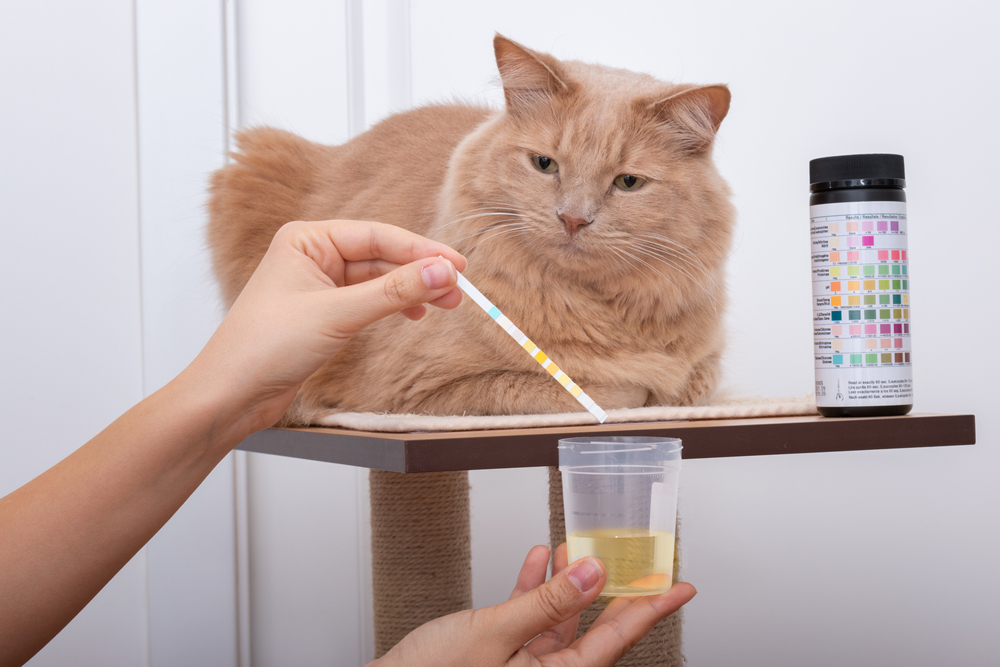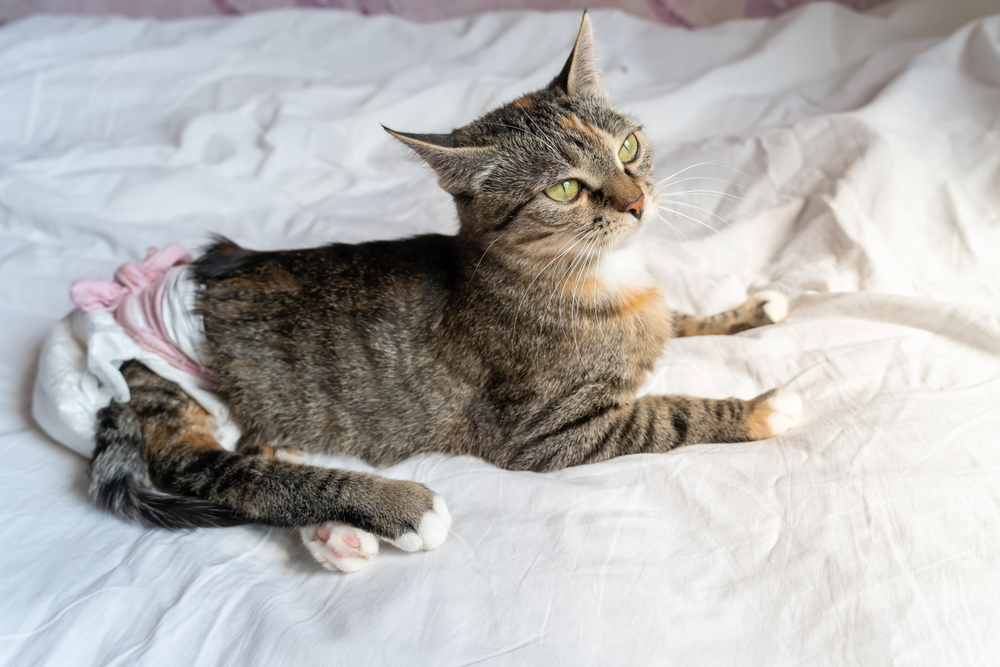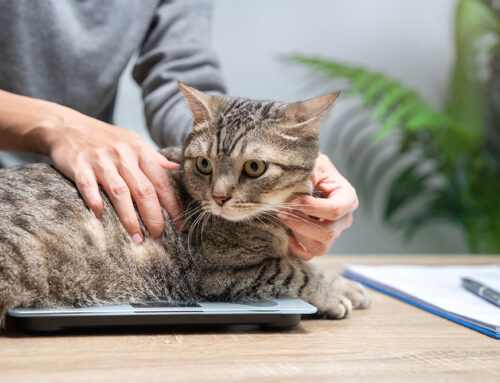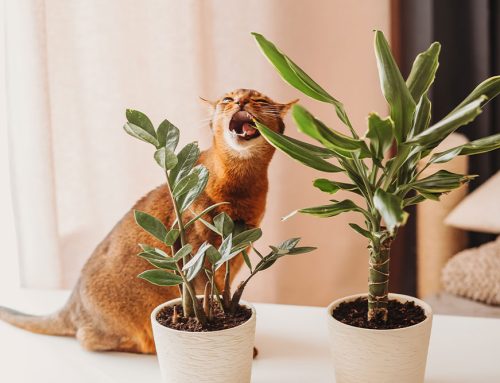A cat straining in the litter box or crying while trying to urinate may be experiencing feline lower urinary tract disease (FLUTD), a condition that ranges from painful bladder inflammation to life-threatening blockages. Owners often wonder if this can wait until morning. Generally, the answer is no.
At Flora Family Vet in Kissimmee, FL, we offer same-day urgent care and advanced diagnostics to relieve discomfort and prevent serious complications.
Understanding FLUTD: Causes and Symptoms
What is Feline Lower Urinary Tract Disease?
Feline lower urinary tract disease encompasses several conditions affecting the bladder and urethra in cats. This umbrella term includes everything from simple bladder inflammation to complete urinary blockages that can become fatal within hours. The condition affects cats of all ages, though middle-aged, overweight, indoor cats face higher risks.
Common symptoms include:
- Difficulty urinating
- Blood in the urine
- Frequent trips to the litter box with little to no urine production
- Urinating outside the box
Many cats also show behavioral changes like excessive grooming of their genital area, restlessness, or vocalizing during urination attempts. Early detection and treatment prevent complications that can escalate quickly from uncomfortable to life-threatening.
Common Causes of FLUTD in Cats
The most frequent cause of FLUTD is Feline Idiopathic Cystitis (FIC), where the bladder becomes inflamed without a clear cause. Stress often triggers FIC episodes, making environmental factors crucial in both development and management. This condition affects up to 60% of cats with urinary symptoms, particularly those in multi-cat households or experiencing recent changes in routine.
Urethral obstruction in cats is the most serious form of FLUTD. Male cats face higher risks due to their narrower urethras, which can become blocked by crystals, stones, or inflammatory debris. Complete obstruction prevents urination entirely and requires immediate emergency treatment to prevent kidney damage and death.
Urinary stones develop when minerals crystallize in concentrated urine. Struvite stones tend to form in alkaline urine, and calcium oxalate stones in acidic urine. Stones can irritate the bladder lining or block urine flow, causing significant discomfort and complications.
While less common in cats than dogs, urinary tract infection in pets can contribute to FLUTD. Bacterial infections typically occur secondary to other conditions that compromise the bladder’s defenses, such as diabetes or kidney disease.
How to Recognize the Symptoms of FLUTD in Cats
Early behavioral clues include spending a long time in the litter box, repeatedly assuming the urination position with little to no output, vocalizing during attempts, or urinating in unusual places like bathtubs, sinks, or tile floors.
Physical signs include blood in the urine (sometimes only detectable microscopically) and excessive genital licking due to irritation. Understanding proper litter box upkeep helps owners spot changes early, as cats with FLUTD may associate the box with pain and avoid it.
How Flora Family Vet Can Help Cats with FLUTD
Diagnostic Tools and Techniques for Cats with FLUTD
Accurate diagnosis is key. Our comprehensive diagnostic services include in-house urinalysis, complete blood counts, and chemistry panels to identify crystals, bacteria, blood cells, and assess kidney function.
Digital X-rays can reveal stones and evaluate bladder size and position. Ultrasound provides detailed images of bladder wall thickness, stone characteristics, and structural abnormalities. Using these tools together allows us to target the underlying cause rather than guess.
Urgent Care Services
FLUTD can quickly become life-threatening, especially with urethral obstruction. Our urgent care offers same-day evaluation and treatment for urinary symptoms. Waiting can mean the difference between a manageable condition and an emergency.
During urgent care visits, we prioritize stabilization and pain relief while running essential diagnostics. For blocked cats, immediate catheterization and fluid therapy can be life-saving, restoring urine flow and correcting dangerous electrolyte imbalances.
Treatment Options for Cats with FLUTD
Treatment depends on the cause and severity. Most plans combine medication and diet. Anti-inflammatory medications reduce bladder inflammation and pain. Muscle relaxants can ease urethral spasms. Prescription urinary diets help dissolve certain stones and prevent crystal formation,
For cats with recurring blockages despite medical management, Perineal Urethrostomy (PU) surgery may be considered. By creating a wider urethral opening, PU can prevent future obstructions. This procedure requires careful planning and post-operative care but can be life-saving for frequent blockers.
Preventive Measures and Home Care to Keep Cats Healthy
Environmental Enrichment for Stress Reduction in Cats
Stress reduction is central to preventing recurrences, especially with idiopathic cystitis. Enrichment provides security and reduces stress-related inflammation. Simple additions like DIY enrichment toys offer mental stimulation and exercise.
Optimizing the home environment goes beyond toys. Following cat environment tips helps you establish multiple water sources, feeding stations, litter boxes, and resting areas. This reduces competition and territorial stress in multi-cat homes and gives cats choice and control.
Dietary Considerations for Urinary Health in Cats
Nutrition directly impacts urinary health. The wet or dry cat food considerations debate matters for FLUTD: wet food increases water intake and dilutes urine, reducing crystal formation. Quality and formulation, however, matter more than format alone.
Prescription urinary diets are formulated to maintain optimal urine pH, limit minerals that form stones, and promote water consumption. These diets should be used with veterinary guidance to ensure they meet your cat’s individual needs.
Importance of Regular Veterinary Check-Ups for Cats
Routine wellness and prevention visits support early detection before symptoms escalate. Periodic urinalysis can reveal microscopic changes, while exams monitor weight, body condition, and overall health.
Preventive care includes reviewing your cat’s environment, diet, and behavior for early warning signs. We encourage you to request an appointment to keep your cat on track and avoid emergencies.
Setting the Record Straight: FLUTD Facts Cat Owners Should Know
Many owners assume all urinary symptoms are bacterial infections needing antibiotics. In reality, bacterial infections account for only a small percentage of feline cases. Unnecessary antibiotics can disrupt normal bacteria without addressing the real cause and may worsen issues.
Another misconception is that FLUTD affects only older cats or those with poor diets. Young, otherwise healthy cats can develop idiopathic cystitis, particularly during stressful periods. The bottom line: FLUTD needs professional evaluation. Home remedies or watchful waiting can be risky.

Frequently Asked Questions About FLUTD
Can FLUTD be cured completely?
Some causes, like bacterial infections, can be cured with appropriate treatment. Idiopathic cystitis is managed rather than cured. With dietary management, environmental modifications, and regular veterinary care, many cats live comfortable, normal lives.
What should I do if I notice symptoms?
Contact your veterinarian immediately, especially if your cat is straining or hasn’t urinated in several hours. Male cats require urgent evaluation due to higher obstruction risk. If you have questions about symptoms, please contact us for guidance on whether immediate care is needed.
Taking Action for Your Cat’s Urinary Health
Early recognition and prompt treatment of FLUTD symptoms can prevent painful complications and life-threatening emergencies. If your cat is straining in the litter box, crying during urination attempts, producing bloody urine, or hasn’t urinated in several hours, seek veterinary attention immediately.
Our diagnostic services and urgent care capabilities at Flora Family Vet ensure your cat receives accurate diagnosis and effective treatment when urinary symptoms develop. Don’t wait to see if symptoms improve on their own. Call us at (407) 348-4840 to schedule same-day urgent care. Our experienced team is ready to provide the compassionate, expert care your cat needs.








Leave A Comment